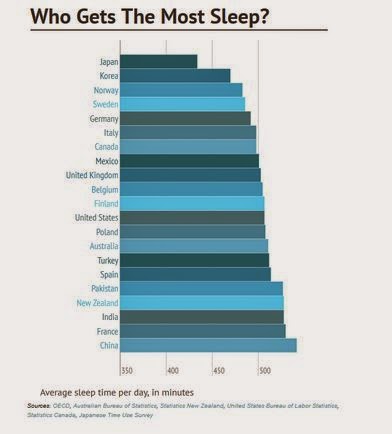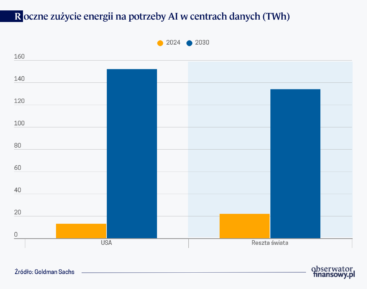German automotive industry at a crossroads
Kategoria: Business
This Great Graphic was posted on the Huffington Post. It depicts the variation of sleep per night by country in minutes per night. The data comes from various national sources as well as the OECD.
It is based on self-reporting, which seems open to interpretation. Does going to bed equate with going to sleep, for example ? In addition, the data does not appear to come from the same year, and there does seem to be large swings in a short-period of time.
Japanese get the least amount of sleep, according to the data, based on a 2010 time-use report. They get an average of seven hours 14 minutes on weeknights. It has been declining since the 1970s.
According to 2011 OECD data, Chinese get the most sleep, with more than nine hours a night. The Huffington Post wonders whether it has to do with the highly accepted practice of sleeping in public.
The US data for this chart appears to have been drawn from the 2013 Bureau of Labor Statistics Time Use Survey. It finds that Americans claim to sleep about 8.5 hours on average on week nights and 9.3 hours on weekends. These results are much greater than the National Sleep Association found (6.5 hours during the week and 7.3 hours on weekends).



